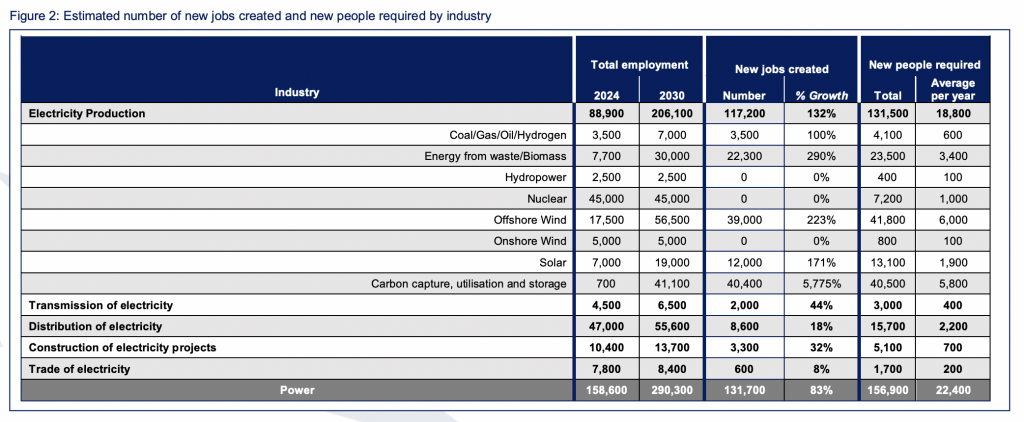The power industry has to recruit over 22,400 people over the next six years to achieve its Net Zero while the gas industry will require over 2000 people annually to launch a hydrogen industry, according to new figures from Energy and Utility Skills (EU Skills).
The industry skills body said these industries would require staffing levels to increase by 83% between now and 2030 and understanding how the Net Zero target and other ambitions to improve the utility infrastructure affects workforce and skills demands is essential if the sector is to rise to its challenges.
The group said 158,600 people are currently employed in the power industry. By 2030, this is forecast to increase to 290,300 – an increase of 131,700 (up 83% on 2024 levels). That would mean average of 18,800 new jobs would be created per year. Accounting for retirements, 156,900 new people will be required to enter the industry’s workforce for the first time – an average of 22,400 per year.
It found that most of the growth will be in electricity generation, where fast-growing industries would have extensive new needs. Offshore wind would require an additional 39,000 workers (up 223%) while solar would require 12,000 new workers (up 171%).
The estimate included new industries like carbon capture, utilisation and storage, which has just 700 people currently employed, but would require 40,400 workers to meet government and industry’s 2030 ambitions.
In the gas industry, significant growth is forecast by EU Skills, but the groups says all the growth relates to the production, transmission and distribution of hydrogen.
There are an estimated 23,500 people currently employed in the gas networks industry. A growing hydrogen industry will be behind a forecasted increase to 39,300 by 2030, which, accounting for retirements, will mean 19,600 new people will be required to enter the industry’s workforce for the first time (an average of 2,300 per year). EU Skills estimates that the trade of gas through the mains (i.e. the retail of gas to customers), is forecast to reduce its workforce by 1,200 – from 6,100 to 4,900.
Other than that, EU Skills said, “the workforce associated with the principal activities of the networks remains unchanged”.
